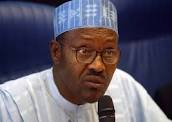
Nigeria is at crossroads. The current administration came at a historic moment. It took over just as the nation clocked one hundred years of its existence as Nigeria. It is the first time in history when there was a change of government from one party to another through democratic means. It was also the first time that a defeated presidential candidate conceded victory to his opponent and refused to go to court to challenge the electoral outcome. The euphoria is understandable; the expectations are palpable; and the goodwill simply unimaginable. For the sake of Nigeria therefore, failure is not an option for the Buhari administration.
It is a most trying period, no doubt. There is fuel scarcity with the result that while oil price at the international level is going down, in Nigeria, an oil producing nation, people are paying more for fuel. Electricity supply is also going down. All the so-called private sector participation in the power sector is turning out to be real fraud. Naira is also losing its value against other convertible currencies. Consequently, prices of basic goods and services are consequently skyrocketing. But the people are hopeful because everyone knows that this is the cumulative effect of years of neglect by successive administrations. Hope is the life-blood of the living. Because we don’t give up on our expectations for this government to deliver, we will offer some suggestions.
The first priority for Nigeria right now is very obvious; and that is internal security. Nigeria does not have any external threats. The primary responsibility of any government is the protection of life and property of its citizens. No investor can come in a climate of fear. Thus, there is need to give priority attention to this critical area which is directly under the interior portfolio. This government is trying in this regard but there is room for improvement and to do more. Training of existing security and police personnel as well as recruiting more will go a long way in helping to secure our homes, and means of livelihood.
The second priority is clearly agriculture. Apart from the fact that food security is a major aspect of national security, agriculture has the biggest capacity to absorb the unemployed. Again, every local government has agricultural potential one way or the other. Agriculture is the largest contributor to our GDP, 42 percent and provides employment for over sixty percent of the nation’s population. If, as it is said, a hungry man is an angry, it therefore means, a well fed man is a happy man.
The third priority clearly is education. With youth constituting over sixty percent of the country’s population, there is need for them to be educated to acquire the necessary skills that will enable them to contribute meaningfully to national development efforts. Technical, vocational and scientific education are very important for the modern knowledge- driven economies of today’s world. The educational facilities currently are not only inadequate but mostly dysfunctional. Millions do not get admissions and these are the potential recruits for insurgency, militancy and delinquency. A national emergency on education has to be declared since there is correlation between literacy and productivity.
The fourth priority obviously is trade and industry. A private sector-led economy is the in-thing globally but government has to create the enabling environment through building infrastructure, enacting good laws to protect private property, and giving generous incentives for entrepreneurs to invest. The manufacturing base of the nation is simply shameful now. Yes capitalism has triumphed and most of us do not care about all those ideological differences, but one cannot be a capitalist without capital. And it is the government’s responsibility to help hardworking Nigerians get the necessary capital to come into modern businesses.
Most importantly with regard to trade and industry is the need to provide adequate electricity for the country. There is no modern economy that can run without electricity. Power is the oxygen of the modern economy. Nigeria has no reason to complain of lack of electricity. There is abundant potential for conventional and renewable energy. It is scandalous that Nigeria generates between less than 3000mw and 5000mw. Those who bought the distributing and generating companies have to be given time within which to perform or lose their licences. Privatization is supposed to increase efficiency and improve productivity. So it is ridiculous to see that the privatized power companies have achieved none of these objectives.
In this era of globalization, no nation can remain in isolation. Nigeria does not have a national carrier anymore neither do we have any standard companies that can project the image of the country. It is only the embassies that project and protect the interests of Nigeria and Nigerians abroad. It is therefore very important to have an efficient, effective and well-funded foreign affairs ministry with well- motivated diplomats. It is a pity that almost a year since this government came into office, there is no substantive ambassador posted anywhere up to now. Nigeria is too important to be left without effective representation abroad, especially now. Above all, there is the urgent need for the government to appoint the right people with necessary courage, charisma, knowledge, energy and dedication to carry the onerous task of nation building. History is on the side of the oppressed.
LEADERSHIP
END

Be the first to comment